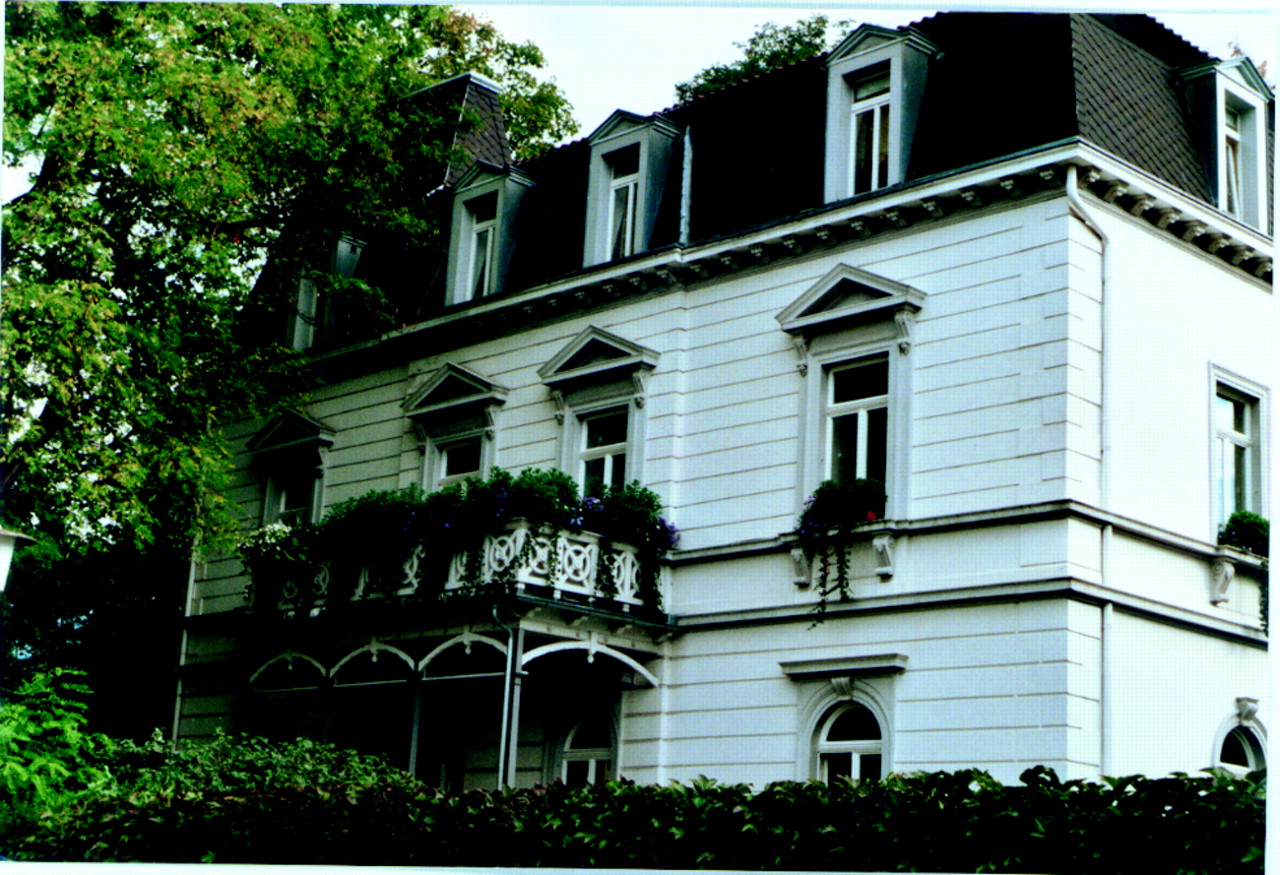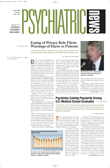Undoubtedly one of the most colorful American psychiatrists during the first half of the 20th century was Frieda Fromm-Reichmann. In addition to being a superstar at Chestnut Lodge in Rockville, Md., which was well known for treating the seriously ill with psychotherapy, Fromm-Reichmann was also immortalized in a bestselling novel by one of her patients called
I Never Promised You a Rose Garden.Many psychiatrists who admire Fromm-Reichmann know, of course, that she had a life in Germany before emigrating to the United States. Indeed, she was born October 23, 1889, in Karlsruhe, Germany; received her medical education at the University of Königsberg, East Prussia, Germany; lived and practiced psychiatry in a villa at 15 Mönchhofstrasse, Heidelberg, Germany, during the 1920s; then came to the United States in 1935 to escape the Nazis and to support her mother and sister.
What many admirers of Fromm-Reichmann do not know, however, is that psychiatrists, psychoanalysts, psychologists, and education authorities in Heidelberg have not forgotten Fromm-Reichmann although it has been 70 years or so since she lived and worked in their city. In fact, for them she is still aktuell—that is, a subject of current interest.
For instance, for Thomas Fuchs, M.D., a University of Heidelberg psychiatrist-psychoanalyst, the name Fromm-Reichmann indeed holds meaning and connotes respect, he told Psychiatric News in an interview. True, he immediately associates Fromm-Reichmann with her husband, Erich Fromm, Ph.D., author of The Art of Loving and other psychology books that have become classics. But he also sees Fromm-Reichmann as being a celebrity in her own right, as having been in the vanguard of the psychoanalytic movement—a psychiatrist who tried to treat seriously ill patients solely with psychotherapy. Fromm-Reichmann’s idealistic approach may be considered naïve today, Fuchs said, but her idealism makes her all the more appealing as a person.
Fuchs’ colleague Martin Bölle, M.D., practices psychotherapy in downtown Heidelberg. He, like Fuchs, spoke of Fromm-Reichmann with great respect during an interview. He called her a “pioneer” and even a “revolutionary” where the treatment of psychoses is concerned. For instance, he pointed out, Fromm-Reichmann, who was part of the so-called “F-2 generation” (the generation after Freud), superseded the Viennese founder of psychoanalysis by focusing on psychoses instead of less-severe neuroses. She was also more progressive than Freud, he said, because of her willingness to treat patients from lower social classes. Furthermore, he added, she concentrated on the social causes of psychoses, not just the unconscious ones, which set her apart from Freud and helped pave the way for family therapy.
Helm Stierlin, M.D., a psychiatrist, psychoanalyst, and a professor emeritus at the University of Heidelberg, is also an internationally recognized family therapist. He practices family therapy in a house nestled in the Heidelberg hills, not far from Fromm-Reichmann’s former sanitorium on Mönchhofstrasse. To say that Stierlin has heard of Fromm-Reichmann would be an understatement: He met her at Chestnut Lodge and recalls her with respect and affection, he said in an interview with Psychiatric News.
For instance, Fromm-Reichmann was an “energetic lady” who divided her time at Chestnut Lodge between treating patients and writing books, he said. She also enjoyed sharing her memories of Germany with him. He likewise recalled how a schizophrenia patient once pointed a pistol at Fromm-Reichmann, and she calmly said: “What do you want? After all, you have a pistol; I do not.” Her quick wit and courage in this instance were later referred to as “pulling a Frieda Reichmann,” Stierlin said with a smile.
But Fromm-Reichmann’s book Principles of Intensive Psychotherapy especially impressed him, Stierlin pointed out, because it promoted Fromm-Reichmann’s deep conviction that no patient is beyond hope. This book, in essence, made her a “great pioneer,” Stierlin said.
The Heidelberg resident who has perhaps the greatest current interest in Fromm-Reichmann is Helmut Wehr, Ph.D., academic counsel and department director in general pedagogy at the Paedagogische Hochschule Heidelberg, a founding member of the International Erich-Fromm Society, and the author of various books and articles on Erich Fromm.
Not long ago, Wehr told Psychiatric News, he decided that he wanted to write a book about the development of psychoanalysis in Heidelberg during the years when Erich Fromm and Frieda Fromm-Reichmann lived there. Such a book would include extensive material about both Fromm and Fromm-Reichmann since both were psychoanalysis pioneers at that time. However, it was Fromm-Reichmann who introduced Fromm to psychoanalysis, Wehr said.
Along with two psychologist colleagues in Heidelberg, Wehr is now gathering material for the book. They are especially interested in exploring exactly how much influence Fromm-Reichmann’s psychoanalytic theories and therapies had on Fromm.
If all goes as planned, the book will be published next year.
So, whereas Frieda Fromm-Reichmann may be long gone from that charming city on the Neckar River, she is still very much alive for Heidelberg’s psychiatrists, psychoanalysts, psychologists, and pedagogues. ▪

